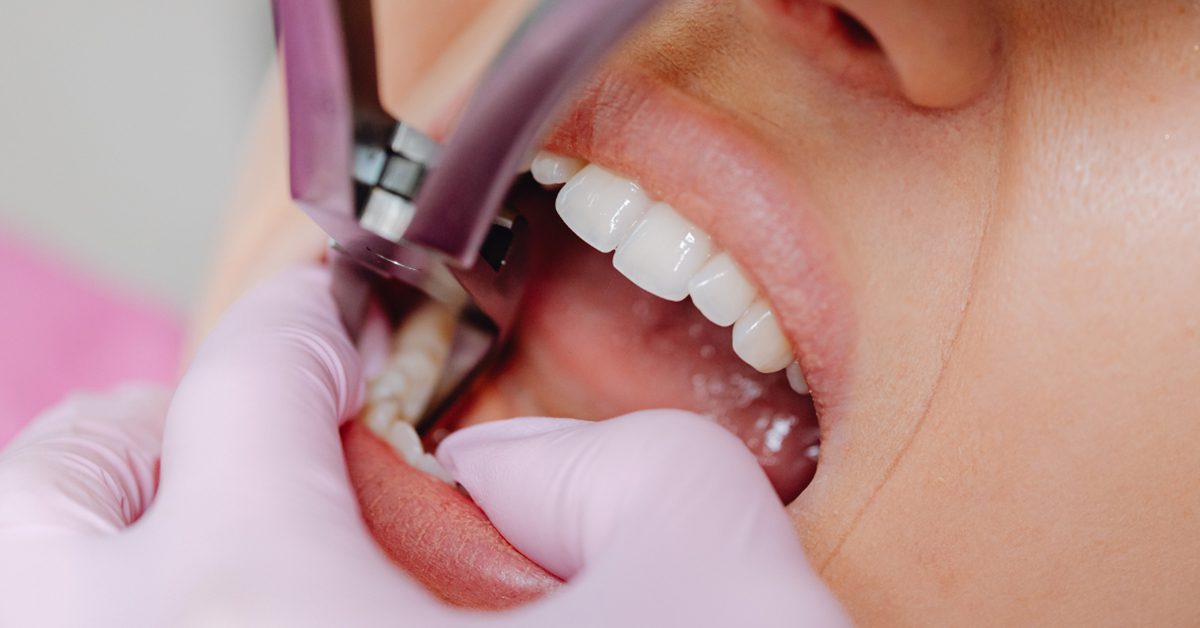Do you have a toothache that just won’t go away? You may be tempted to ignore it, but there are very real risks associated with failing to take care of a decaying tooth in a timely manner. Left untreated, the status of your oral health can drastically deteriorate and negatively impact other aspects of your life.
So let’s explore why it’s important to call Advanced Indiana in Fortville, IN get that problematic tooth removed right away and why you don’t want to experience any of the risks of not removing a decaying tooth.
What Is Tooth Decay?
Tooth decay occurs when bacteria in the mouth feed on food particles, producing acids that attack the tooth enamel. Over time, this acid can break down the enamel and create holes in the teeth, known as cavities. If left untreated, a cavity can travel deeper into the teeth and cause infection or even death of tooth tissue.
Health Risks Of Not Removing A Decaying Tooth
You might think that a decaying tooth is just a cosmetic issue, but in reality, it can cause serious health problems if left untreated. Ignoring a rotting tooth can lead to widespread infection, a painful abscess, and even tooth loss. It is important to seek dental care as soon as possible to prevent any further damage to your smile and overall health. Let’s explore the risks of not removing a decaying tooth.
Toothache and Sharp Pain
A decaying tooth can cause intense, throbbing pain. As the cavities progress and reach deeper layers of the teeth, you may experience an increased sensitivity to hot and cold foods and drinks. Moreover, a neglected cavity will eventually expose the root of your tooth to bacteria, leading to severe pain caused by infection.
Bacterial Infection
When mouth bacteria in your mouth begin to break down your tooth enamel, it can lead to a cavity. If left untreated, this cavity can become larger and deeper, allowing bad bacteria to reach the soft tissue inside of your tooth, called the pulp. Once the pulp is infected, it can spread to the root of your tooth and beyond. This can cause a painful abscess and extensive damage to your oral health.
Gum Disease
Decaying teeth can also cause gum disease, which can lead to the destruction of your gums and even the bones that support your teeth. Gum disease can cause bleeding, swelling, and even tooth loss. It can also increase your risk of heart disease and stroke.
Tooth Loss
A decaying tooth that is left untreated can eventually become too damaged to save. This can result in tooth loss, which can lead to difficulty eating, speaking, and self-esteem issues. Tooth loss can also cause your remaining teeth to shift, leading to bite problems, jaw pain, and further dental problems.
Injury to Other Teeth
If you leave a decaying tooth untreated, it can cause damage to the neighboring teeth. This is because cavity-causing bacteria in your mouth are constantly on the move, so any infected teeth will pose a risk to healthy ones. Additionally, an untreated cavity can also weaken other nearby teeth and increase your risk of additional dental issues and medical conditions.
Spread of Infection
A tooth infection that is left untreated can spread to other parts of your body, including your brain. This can cause a life-threatening condition called sepsis. Symptoms of sepsis include fever, chills, rapid heartbeat, and confusion. It is a medical emergency that requires immediate treatment.
Jawbone Damage
A decaying tooth can also damage the bone around it, causing swelling and pain. The infection can spread to the jawbone, causing deterioration and further issues with your teeth.
Difficulty Eating and Speaking
A decaying tooth can also make it difficult to eat and speak properly. This can cause malnutrition and further damage to your oral health. Difficulty speaking can also affect your social life and career, leading to a lack of confidence and opportunities.

How to Avoid Getting a Tooth Decay
Tooth decay is a common dental issue that affects many people around the world. It is caused by a combination of factors, including harmful bacteria, sugary foods, and poor dental hygiene. Tooth decay can be painful, uncomfortable, and expensive to treat. Fortunately, there are several ways to prevent tooth decay from occurring. In this article, we will share some tips on how to avoid getting tooth decay.
1. Brush and floss your teeth regularly
Brushing and flossing your teeth regularly is the best way to prevent tooth decay. You should brush your teeth at least twice a day using fluoride toothpaste. Flossing helps to remove food particles and dental plaque that your toothbrush cannot reach. Make sure you brush and floss properly to avoid leaving any areas untouched.
2. Limit sugary and acidic foods
Sugary and acidic foods are the main culprits when it comes to tooth decay. They create an environment in which decay-causing bacteria thrive, leading to the production of acid that erodes your tooth enamel. You should limit your intake of sugary and acidic foods such as candies, soda, and fruit juices. If you must have them, make sure you brush your teeth afterward.

3. Use fluoride toothpaste
Fluoride is a mineral that helps to strengthen your tooth enamel and prevent severe tooth decay. It is found in most toothpaste brands, but you should make sure that the toothpaste you use contains fluoride. You can also ask your dentist to recommend a fluoride mouth rinse to supplement your oral hygiene routine.
4. Visit your dentist regularly
Regular dental check-ups are important for maintaining good oral health. Your dentist will be able to detect any signs of tooth decay and provide treatment for tooth decay before it gets worse. Regular dental visits to your dentist, like twice a year, are recommended, but if you have a history of dental problems, you may need to go more often.
5. Chew sugar-free gum
Chewing sugar-free gum after a meal can help to reduce the risk of tooth decay. It stimulates saliva production, which helps to neutralize the acids in your mouth and wash away food particles. Make sure you choose gum that is sugar-free and contains xylitol, a natural sweetener that helps to prevent tooth decay.
Schedule Regular Dental Check-ups At Advanced Indiana!
A decaying tooth is not just a minor issue that can be overlooked. It can cause serious health problems for your oral health and overall well-being. Seeking dental care as soon as possible is crucial to preventing any further damage and complications.
If you notice any common symptoms of tooth decay, such as tooth sensitivity or discoloration, request an oral examination at Advanced Indiana immediately. Our team of experienced dentists can provide the care and dental treatment needed to restore your oral health. Call us today to schedule a dental checkup and keep your teeth healthy!

